
03 – 12-2023
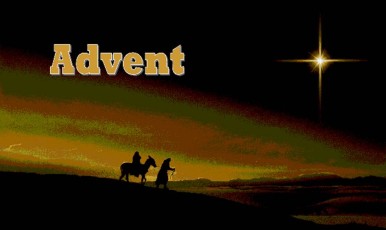
First Sunday of Advent
Gospel text : Mark 13:33-37
vs.33 Jesus said to his disciples:
“Be on your guard, stay awake, because you never know when the time will come.
vs.34 It is like a man traveling abroad: he has gone from home, and left his servants in charge, each with his own task; and he has told the doorkeeper to stay awake.
vs.35 So stay awake, because you do not know when the master of the house is coming, evening, midnight, cockcrow, dawn;
vs.36 if he comes unexpectedly, he must not find you asleep.
vs.37 And what I say to you I say to all: “Stay awake!”
***************************************************************
We have Three Commentators available to choose from:
Michel DeVerteuil Lectio Divina with the Sunday Gospels – Year B
Thomas O’Loughlin Prof of Hist Theol, Uni. of Nottingham NG7 2RD,
Liturgical Resources for Advent& Christmas Years A,B, and C
Donal Neary Gospel Reflections for Sundays of Year B
****************************************
Michel DeVerteuil
Lectio Divina with the Sunday Gospels- Year A
www.columba.ie
General Comments
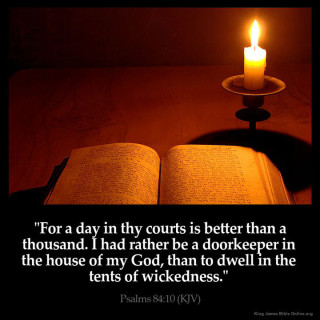 Although the passage is short, you may divide it up, as each section is different and you may meditate on it separately.
Although the passage is short, you may divide it up, as each section is different and you may meditate on it separately.
The key to to understanding verse 33 is to take “the time” as the time of grace, the time when a longed for event finally comes to pass: Jesus is reminding us that if we are not awake we let those moments pass us by.
Verses 34 and 35-36 are a parable, although the emphasis changes is verse 35 so that even these two verses should be meditated on separately. In verse 34 the vocation of the doorkeeper is the focus, so enter into it. In verse 35-36 the delay in coming is the main point.
In verse 37 identify with Jesus, consciously making a distinction between “you” and “all”.
Prayer Reflection~
Lord, we remember the hard times when :
– a relationship meant everything to us, yet we were just not communicating;
– a beloved child had turned to drugs or alcohol;
– the project to which we had given ourselves wholeheartedly collapsed.
Then, quite unexpectedly, something happened and all was well again.
How true, Lord, that when we are dealing with people we must never lose hope but remain on our guard and stay awake,
because we never know when the time will come.
Lord, the world today presents a dismal picture:
– violence in families, in neighbourhoods, between nations;
– famine in the midst of abundance;
– money that is sorely needed for food and drink spent on arms.
It is enough to make anyone despair.
You tell us today that this is not your will for the world at all.
It is like when the master of the house goes abroad and delays returning,
so that everyone becomes slack and undisciplined.
We pray that we Christians may be like faithful servants,
each of us with our own task,
and especially that we may be like doorkeepers,
a sign to all that this world is your home
and you will be returning soon to live with us.
Lord, we thank you for the people who have waited for us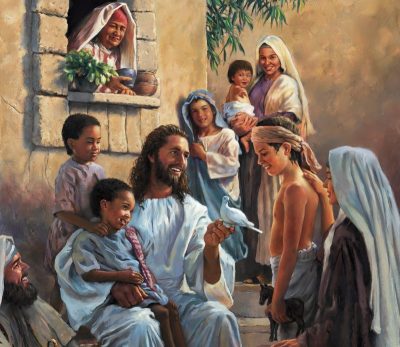
– parents, grandparents, uncles and aunts;
– the church community; friends.
When everyone else had given up on us and gone to sleep,
they were the doorkeepers.
As we hesitantly made our way home, wondering if we would be let in,
they were awake and welcomed us back.
Lord, forgive us that we give up too quickly
just because evening and midnight have passed.
But when we stop hoping we miss the opportunities you send us: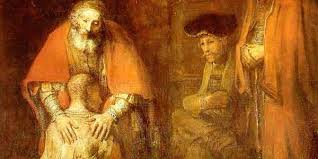
– a moment of reconciliation comes but we don’t even notice it;
– the word of encouragement that could have brought a community or nation to life remains unspoken;
– we give things to people but we do not give them the space where they could grow in self-confidence,
all because we are not on our guard and have gone to sleep.
Lord, we watch today with all those who wait:
– oppressed peoples throughout the world;
– those who are trying to be agents of reconciliation in Ireland, in Colombia, in the Holy Land; in the Ukraine or other troubled places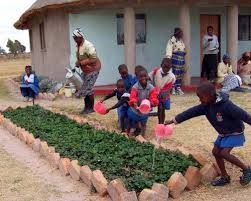
– those who are working for solidarity between rich and poor nations.
Evening, midnight, cockcrow, dawn have all come and gone. We watch with them, trusting that their time will come
Lord, there are many in our country who have lost hope. Say to all what you have said to us Christians – that we must not despair but must stay awake.
********************************************************
Thomas O’Loughlin
Liturgical Resources for Advent& Christmas Years A,B, and C
www.columba.ie
Introduction to the Celebration
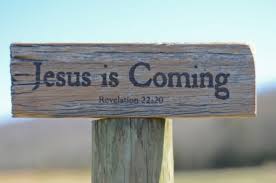 Today we begin Advent. This is the period when we prepare to celebrate the coming of the Christ among us two millennia ago,
Today we begin Advent. This is the period when we prepare to celebrate the coming of the Christ among us two millennia ago,
but we also believe that he is coming among us now and so we have to be prepared to receive him,
and we know that he will come again at the end of time and we have to prepare the world for his coming. Everything we do as Christians is related to these three comings. So let us reflect on how it is because he first came that we are here at the Eucharist today; gathered now we ask pardon of our sins that we might be prepared for his second coming in this Eucharist; and as a community let us pray that we will be ready to stand before him when he comes again in Glory.
Homily Notes
1. On this first Sunday of Advent the church’s thoughts are concentrated not on the coming of the Lord in Palestine two millennia ago, nor upon the new liturgical year, 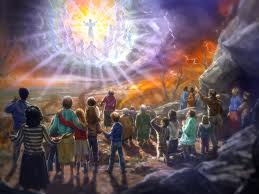 but on the Second Coming at ‘the end of time‘, the Last Days, the Parousia, the Eschaton, ‘The End’.
but on the Second Coming at ‘the end of time‘, the Last Days, the Parousia, the Eschaton, ‘The End’.
This is not a popular topic for preaching. Indeed when most preachers, excluding those from the fundamentalist fringes, are asked about the topic they say that it is one best left alone. However, while preachers are silent, that does not mean that this topic is not communicated in popular programmes, urban folklore, and ill-informed comment in the media.
Most people think they are more than familiar with the Christian view of the end-times: it’s the apocalyptic nightmare when God is going to come as fearful destroyer, give everyone their come-uppance, and it will be a combination of a horror film and a cataclysm. Such thoughts about ‘The End’ are seen to show that in the final analysis God is a mean brute exacting vengeance; and religion is just a scare story of a wicked father punishing misdeeds. This may seem a caricature, but it is widely held and one that many Christians are happy to adhere to as when there are calls for getting back to the real days of preaching when people were told what’s what. Moreover, a glance at Christian religious TV from the USA will show you that there are more than enough communicators of the ‘God as brute vengeance’ message in the world today.
2. Given this fact of so much misinformation in the public imagination about The End, this opportunity to say something that is not sensationalist and does express the church’s faith on the eschaton should not be passed over.
3. The place to begin is to acknowledge that there are two distinct views, schools of thought, about The End within the Christian tradition and that these views go back to the time of the earliest followers of Jesus. On the one hand there is the familiar view that God will come as avenging justice and repay the wicked with suffering: The End as the Great Crunch. A careful reading of the evidence in the gospels makes it almost certain that this was the vision of The End that was preached by John the Baptist: ‘His winnowing fork is in his hand, and he will clear his threshing floor and will gather his wheat into the granary; but the chaff he will burn with unquenchable fire’ (Mt 3:12). One of the matters where Jesus’s teaching is very different from that of John the Baptist is on precisely this point: The End that Jesus announces as coming is one where suffering humanity is delivered through the Father’s love.
For Jesus, The End is the Great Banquet. 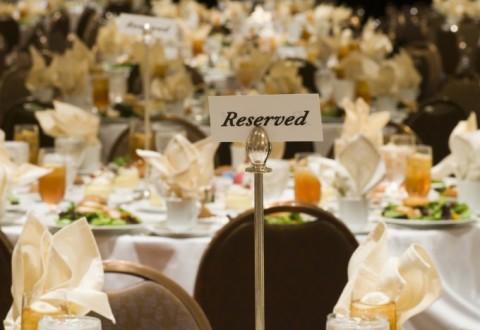 He preached a future in terms of banquet, harvest, rest, and fullness. The stark choice between the message of Jesus and that of the prophet John is the choice between the Great Banquet and the Great Crunch. However, in so far as many of John’s followers became followers of Jesus, they seem to have retained the Baptist’s vision of the future; or they seem to have perceived Jesus’s message as a refinement of John’s, rather than its replacement.
He preached a future in terms of banquet, harvest, rest, and fullness. The stark choice between the message of Jesus and that of the prophet John is the choice between the Great Banquet and the Great Crunch. However, in so far as many of John’s followers became followers of Jesus, they seem to have retained the Baptist’s vision of the future; or they seem to have perceived Jesus’s message as a refinement of John’s, rather than its replacement.
4. Down the centuries these two visions of The End have exercised varying amounts of influence in preaching. Some parts of the church have read, indeed devoured, the Great Crunch approach which has its clearest expression in the Book of the Apocalypse. Other parts of the church have been so appalled by it — the Greek churches on the whole — that while they have kept it in the canon, they have refused to read it in the liturgy. Other parts of the church have preached the Great Crunch, but then used the Great Banquet language of Jesus as the key to imagery about the life of the world to come.
5. The basic message of Jesus about the coming of the Lord is that of being brought into the Banquet of life: God is love, healer, restorer, mercy. If this is our faith, then this must form our vision of the Second Coming. Just as the First Coming was not the mighty warrior king that many hoped for, but love made flesh in Jesus Christ who reconciled the world to the Father, so the Second Coming is the mercy of God in Jesus Christ who reconciles us to the Father and bids us to takes our places in the Great Banquet. Hence our presence today at the Eucharist: this is the foretaste of that banquet. Christ’s coming now in our gathering is the anticipation of his final coming.
6. 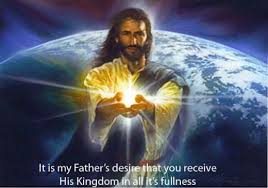 To reflect on how we view the Second Coming is the challenge to purify our mind’s images of the future, of the message of the Christ, and our image of God.
To reflect on how we view the Second Coming is the challenge to purify our mind’s images of the future, of the message of the Christ, and our image of God.
It is to replace the image of the Great Crunch with the Great Banquet; to replace the image of vengeance with that of mercy; to replace the image of God is power with that of God is love.
*******************************************************
Donal Neary SJ
Gospel Reflections for Sundays of Year B
www.messenger.ie/bookshop/
The Invitation
I like these words of the late Cardinal Hume: “There are times when I can visualize Our Lord at the break of day standing by my bed and saying: “Get up, follow me.” Whether I am conscious of it or not, in effect that invitation, that loving but insistent command, is given to me every day. Each new morning is the opportunity to start again. Yesterday there may have been inadequacies and failures but today Christ renews his call: “Follow me. I have chosen you. I need you.” Who can fail to respond to the thought that God needs our willing collaboration.”
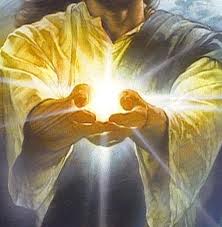 We are carers of creation and of his people. Take this seriously, it is our world. God has made himself so vulnerable and this gospel reading is just before the passion. An area or parish improves if enough people do something. We look at areas in a locality which are now clean of drugs, more prosperous and just. This has been the work of people co-creating the world with God. Making it a better place. Doing the world a world of good.
We are carers of creation and of his people. Take this seriously, it is our world. God has made himself so vulnerable and this gospel reading is just before the passion. An area or parish improves if enough people do something. We look at areas in a locality which are now clean of drugs, more prosperous and just. This has been the work of people co-creating the world with God. Making it a better place. Doing the world a world of good.
Gospel today says – Don’t give up. God is always near! Live in hope and preparation. Stay awake to the season – the ways we can deepen and grow in our faith — maybe do a a retreat, do something good for others with your time or finance, notice God in the events of the next few weeks, pray a bit every day, make time to be awakened to the centre of our world who is God, and to his central action in creating the world each day, sending Jesus Christ his Son.
A question for the first week of Advent:
How can I help someone today?
Lord, send me, use me, create me for your work in the world.
*****************************